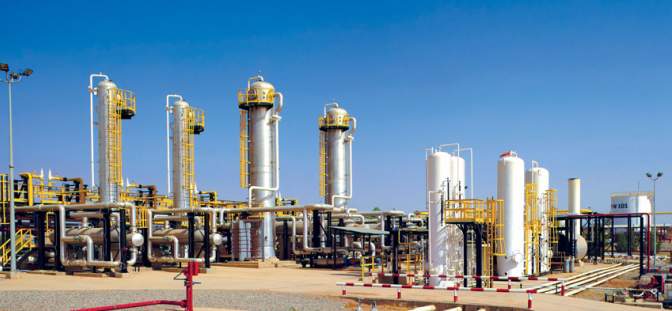DNO ASA, the Norwegian oil and gas operator, today reported boosting Kurdistan output to 113,700 barrels of oil per day (bopd) in the third quarter, reversing declines triggered by oil market convulsions in the wake of Covid-19.
Production from the DNO-operated Tawke and Peshkabir fields was up 12 percent from the prior quarter following a campaign of quick turnaround, low cost well interventions and the startup of the Kurdistan region of Iraq’s first enhanced oil recovery project.
Both fields have outperformed expectations and DNO projects replacement of a significant share of its reserves produced this year in Kurdistan, even as the Company scaled back drilling of new wells to meet a one-third budget reduction in response to lower oil prices and a four-month payment hiatus in Kurdistan.
The Peshkabir-to-Tawke gas capture and reinjection project, in operation since mid-year, is continuing to cut gas flaring and greenhouse emissions by half at Peshkabir to 7 kilograms CO2 equivalent for each barrel of oil equivalent produced, while unlocking additional oil at Tawke. To date, two billion cubic feet of otherwise flared gas have been reinjected with positive reservoir response, adding up to 5,000 bopd.
“Starting in June, our Kurdistan teams took up the challenge of doing more with less, launching creative solutions they called Operation Throttle-Up and Operation Afterburner, which delivered the stellar operational results we report today,” said Bijan Mossavar-Rahmani, DNO’s Executive Chairman. “Once again, at DNO the oil we produce is conventional; how we do it is not.”
Across the portfolio, third quarter 2020 Company Working Interest (CWI) production increased nine percent from the second quarter to 97,900 barrels of oil equivalent per day (boepd), of which Kurdistan contributed 80,200 bopd and the North Sea 17,700 boepd.
DNO expects to exit the year with Kurdistan and North Sea production at third quarter levels.
Revenues more than doubled to USD 163 million in the third quarter on the back of improved oil prices and higher cargo liftings of previously produced oil in the North Sea. EBITDA climbed to USD 76 million in the third quarter up from USD 13 million in the previous quarter on higher revenues.
However, North Sea non-cash impairments of USD 202 million pre-tax (USD 118 million post-tax) related principally to the South East Tor and Iris/Hades assets led to an operating loss of USD 208 million.
In July 2020, the Company completed the drilling of Zartik-1, the third exploration well on the Baeshiqa license on a separate structure around 15 kilometers southeast of the Baeshiqa-2 discovery well. Testing of the Zartik-1 Upper Jurassic reservoirs continued through the third quarter. Evaluation of the results of the previously reported discoveries in the Baeshiqa-2 well is ongoing to determine commerciality.
Temporary Norwegian petroleum tax incentives are driving investment plans, with the Company maturing development options for the Brasse field (2021 PDO) and evaluating the Iris/Hades, Fogelberg and Trym South discoveries (2022 PDOs). Appraisal of the Bergknapp discovery (DNO 30 percent), among Norway’s largest discoveries this year, is scheduled for 2021.
Two exploration wells are scheduled in the fourth quarter with Polmak already drilling in the Barents Sea (DNO 20 percent) and Røver Nord to spud shortly in the Northern North Sea (DNO 20 percent). These wells will be followed by an active exploration program in 2021 including wildcat wells at Gomez in the Southern North Sea (DNO 85 percent) and Edinburgh cross-border (UK-Norway) in the North Sea (DNO 45 percent).
Following the latest UK licensing round, DNO was awarded four licenses (two operated) all with previous discoveries.
(Source: DNO)
The post DNO boosts Kurdistan Oil Output in Q3 first appeared on Iraq Business News.

